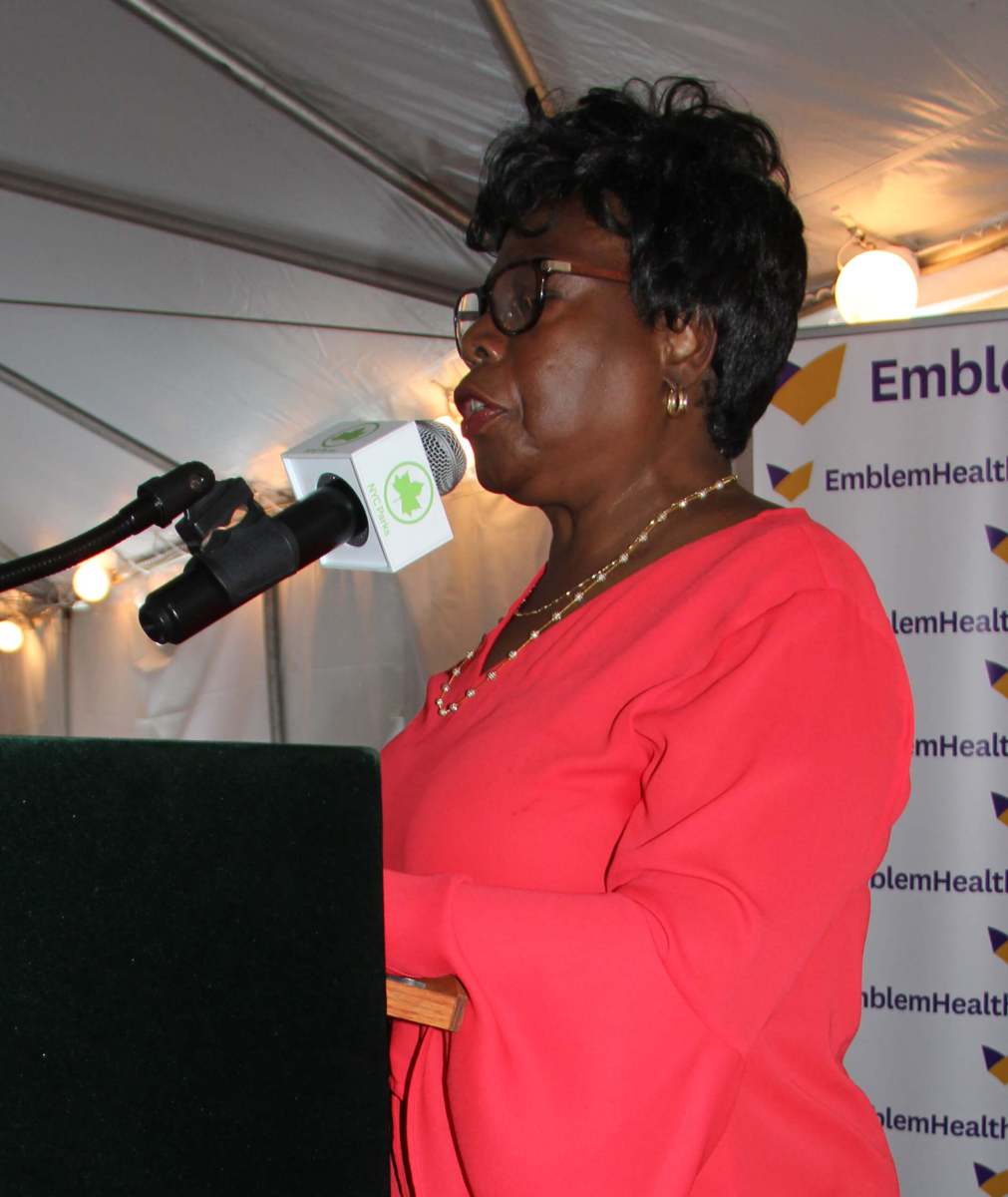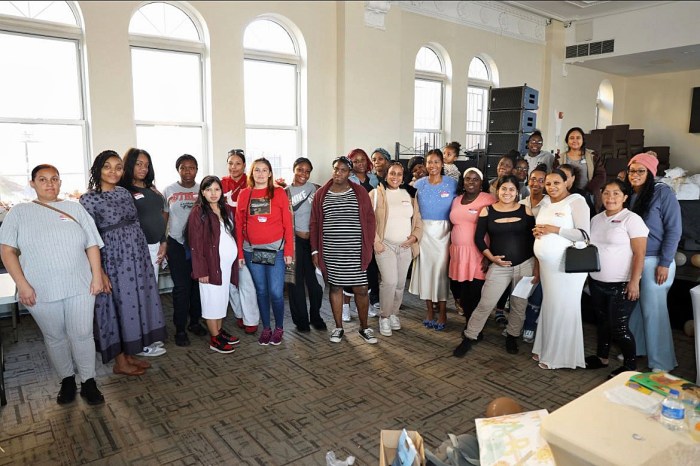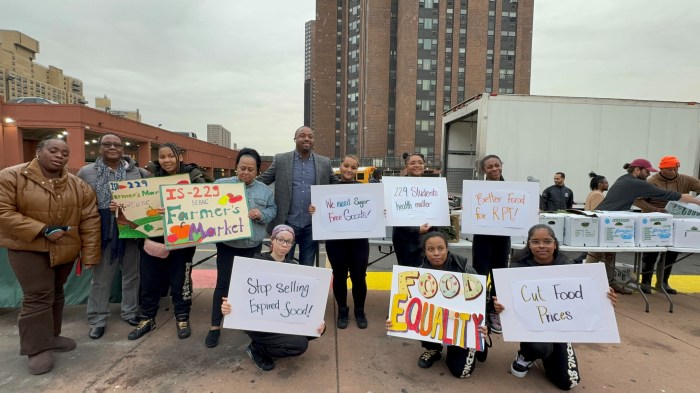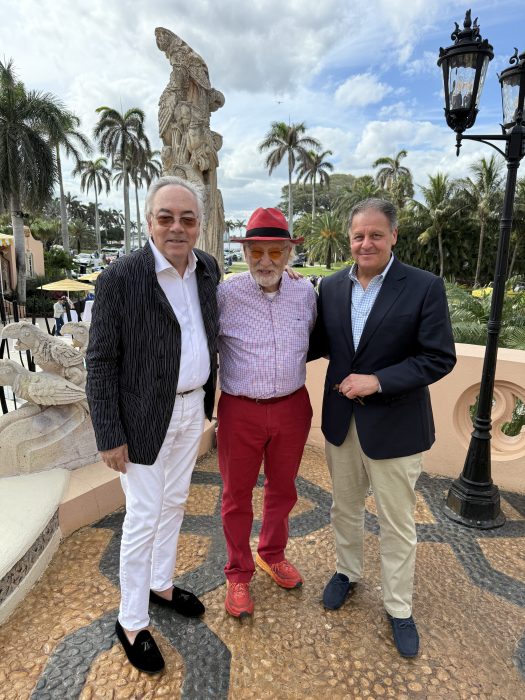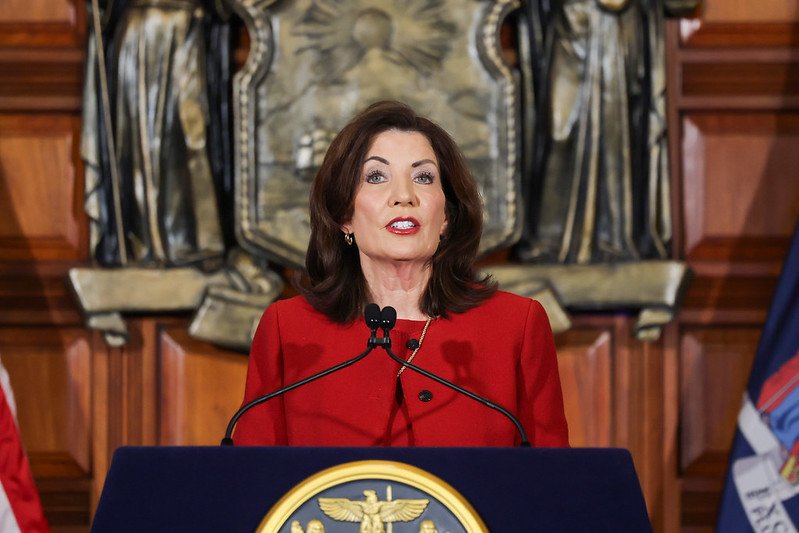Four recently suspended, then terminated, board members of the West Indian American Day Carnival Association (WIADCA) have claimed that the board of directors of the Brooklyn-based carnival group has taken “a position of hostility” against them, “albeit illegally.”
In a joint statement, issued exclusively to Caribbean Life earlier this week, the four former members — Deborah Benjamin, Leah Clark-Brisard, Patricia Warwick and Valerie Mcleod-Katz – alleged that they were “permanently removed from the organization for exercising their fiduciary responsibilities as board members.”
“The suspension, and then expulsion, of the four members for questioning financial irregularities says a lot about the agenda of WIADCA’s sitting board,” said the former board members.
In her resignation letter, dated Sept. 25, but made available only two weeks ago to Caribbean Life, former WIADCA President, Dominican Jean Joseph, a certified public accountant (CPA), claimed that, among other things, she was “unable to act in my capacity as president, regardless of whatever efforts I have made.
“The internal disputes would result in ridiculous arguments as to the powers of the president,” she charged, claiming, for example, that the Board removed four members “without following any protocol or process.
“They gave these members no say or opportunity to defend themselves,” alleged Joseph without identifying, at the time, the four members. “This outrageous act has been vigorously opposed by me to no avail.”
But WIADCA spokesman, Dr. Hank Sheinkopf, retorted, at the time, that the charges raised by those former board members were “inaccurate.”
“It was an honest discussion attended by counsel,” he told Caribbean Life, adding that “it would be inappropriate to disclose the content of the meetings held while those individuals were in attendance.”
He also did not identify the four members.
But, in their statement, the four former board members said that “per Dr. Sheinkopf’s statement, he erroneously states that the ‘charges raised by the former members were inaccurate’”.
They claimed that they were “not given an opportunity to defend themselves against the ridiculous claims rigged up by the board.”
The former board members also charged that Joseph was “attacked physically early in her tenure as president, but no charges were brought against the board member who initiated the attack.”
They also alleged that Joseph was “unable to act in her capacity as president, regardless of whatever efforts she made.”
But Sheinkopf described as “just silly” the ex-members’ allegation that WIADCA made attempts to silence members with opposing views.
“All members are encouraged to and are given the opportunity to express their concerns,” he said. “There are several mechanisms within the organization for voicing concerns. Those include a complaint mailbox, grievance committee, quarterly member’s forum, etc.”
The former members said that, in November 2019, Joseph brought to the executive board’s attention “certain financial irregularities within the organization’s finances.”
They said that, when this was presented to the board, “she received pushback from certain members.
“She was unable to act in her role as the president because of the internal ongoing disputes within the leadership,” the ex-members charged, claiming that, “as a result of her fight to assume that role, she was met with great hostility – to the point of being accused of ‘breaking and entering’, at which time, police officers arrived at the office to arrest her.
“This chain of events became evident after she informed the board of the financial irregularities,” the erstwhile members alleged.
Sheinkopf said that WIADCA’s treasurer is responsible for overseeing the organization’s finances, and that, due to COVID-19, the treasurer was out of the country when the president raised concerns about access to certain financial documents.
“The board provided remedial options to address the concerns raised,” he said. “However, the options were ignored by the (former) president. Instead, the president had the locks opened and delegated the supervision of the lock replacement to a volunteer of the organization without neither she nor any board member present, given the sensitivity of the documents in the safe.
“In light of the facts above, the board was advised to file a police report,” he added.
The former members said their fiduciary responsibilities and concerns at that time as board members included “the unauthorized issuance of checks, the improper use of grant proceeds, failure to provide check books, lack of transparency of cash collections and disclosure of and access denial to various PayPal accounts.”
They also charged that, “to date, no reports were given for the 2019 Labor Day festivities” and that, “an adequate explanation concerning the requested information was never given as to the delay in presenting the reports.”
But Dr. Sheinkopf said that WIADCA “has always had an independent auditor and accountant, responsible for annual audits and filling of all required regulatory documents, which are publicly available for review.”
He also disclosed that, in 2017, the current chairperson “loaned, at no interest, funds to offset up-front September event costs.
“This debt was reported appropriately,” Sheinkopf said. “There remains an unpaid interest free balance.”
The ex-board members said that the Caribbean community “deserves better.
“We believe that our community needs, and is deserving of, a board that is a true representation of the stakeholders of our carnival and our culture,” they said. “It should not be comprised of individuals whose only agenda is one of self-interest and self-aggrandizement.
“Our carnival has suffered tremendously over the last several years,” they added. “If one should take a closer look at the stats (statistics) of the carnival, one would see where our stakeholders’ participation has dwindled over the years.”
The former members also claimed that several mas bands have “opted out of taking part in our festivities and our parade,” and that “an institution, such as ours, deserves a board that is made up of professionals in the arts and entertainment industry, leadership from within our business community, the torchbearers of our carnival, such as the mas bands, steel bands and artistes.
“We are advocating for a reconstruction of the WIADCA,” they urged. “We need a board that will act in the best interest of our community, not a self-serving board nor a board that does not understand the meaning of the word transparency.
“This is imperative to the welfare of the Caribbean community, the stakeholders and, most importantly, the legacy of our carnival,” they declared. “We deserve better.”
In response, Dr. Sheinkopf said WIADCA “has the right to conduct its business and run its affairs in accordance with its governing documents, mission, and local, state and federal laws.”
He said the New York Band Leaders Association and US Steelband Association are not under the jurisdiction of WIADCA, and that they govern themselves and their members separately.
However, Dr. Sheinkopf said that, over the years, WIADCA has continued to aid in the viability of these associations by encouraging and aiding the respective associations with attaining not-for-profit status, “to help them to be better positioned to apply for available state and local funding;” paying $65,000 to mas band prize winners across all competitions; and paying $45,000 to steelband winners for panorama.
Additionally, he said WIADCA gives each steelband a $4,500 appearance fee and a $5 incentive on every ticket sold by the steelbands willing to participate in selling tickets.
Sheinkopf said these dollar incentives are in addition to the prize awards that “goes above and beyond what is offered in the industry.”
He said that, when WIADCA receives requests from third-parties for the participation of mas/steelbands, it honors them, “which either result in free promotion or financial compensation for their performance.”
Dr. Sheinkopf said that, over the last 1 ½ years, the WIADCA board has been exploring initiatives to improve organization operations, stating that creating advisory boards is “a normal practice for organizations.”
He said that all Board and general members are required to disclose conflicts of interest, and that WIADCA cannot comment further on any matter that might be litigated.


